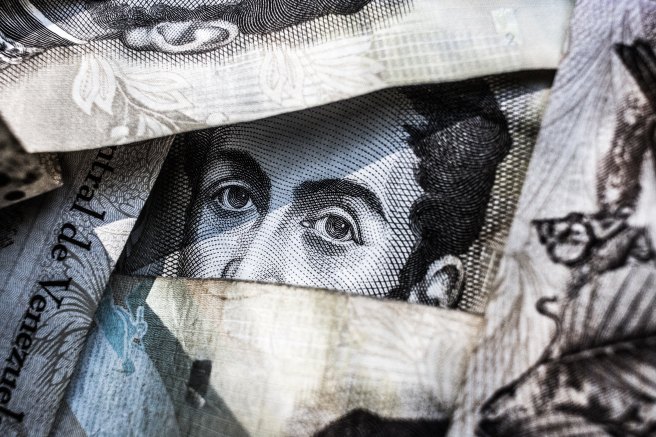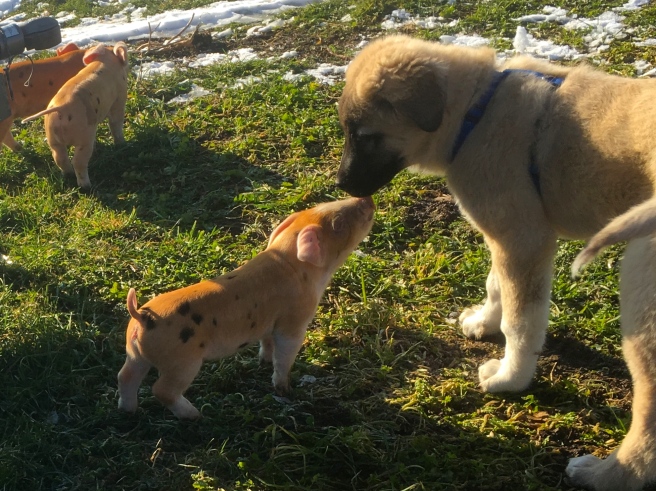
Occasionally, I get an email from someone I’ve never met thanking me. Which is really nice, thank you.
Thanks for what I wonder? For taking a massive risk with my life? Wishing to explore first hand a business model that has been screwed up for-ever? For being contrarian enough to actually want to see for myself what goes on with the animals we eat?
Since I raise animals for meat and I have also worked in a butcher shop that sells more conventionally raised animals than mine, I have had plenty of opportunity to watch people wrestle with their wallets, their habits, and their conscience.
I am honestly not judging here, I feel the dilemma, and struggle with it myself. If humanely raised carried just a small increase in price, say something like a quarter a pound, it would be a no-brainer. Nearly everyone would choose the pastured, humanely raised meat.
But that’s not the case. The reality is that we are talking about doubling the price. No BOGOS, no coupons. I fully understand that’s a lot for a family to absorb if they have no thoughts of changing their overall approach to stocking their pantry.

But here’s the thing. The independent small farm price? That price very simply reflects what the goods actually cost to produce. The actual price of producing the commodity product, without subsidy or market manipulation, would not be that much less.
The difference in price is literally the price of our freedom and independence.
Yes, commodity costs would still be lower through the benefits of vertical integration, cheaper waste-sourced feedstuffs (like irregular or salvaged skittles, bakery goods and recycled poultry litter), high density housing for the animals plus the low wages earned by workers in the countries the meat is imported from – all the usual corner cutting practices that differentiate mass-produced from craft prices in all industries.
But unique to our food system is a convoluted, government subsidy program where the gains of the Big Food Giants are extracted from the losses of the farmers.
Small independent farms selling direct to the public calculate prices by actual cost. You, the customer, pay the actual cost of producing the item, very simple. In contrast, when you purchase commodity foods, many of the expenses are hidden and paid instead with tax dollars. It is very difficult to isolate the true cost of production, and while the small farm must scrupulously bear and include the cost of managing their waste in their retail price, many tax dollars are spent cleaning up the massive messes created by factory farms, which are not reflected in the price of the actual product.
One sunny afternoon, I was enjoying lunch with my aunt and cousin who I had not seen for a while. Halfway through, we were loudly interrupted by a person arriving unannounced, banging on my door to inquire about beef.
I had spent easily forty-five minutes on the phone with this same gentleman just a day or so before, and clearly told him that I would be happy to show him the farm but we needed to make. an. appointment. Clearly.
During his thirty minute surprise visit, while my company waited and our lunch grew cold, he told me all about the “generically modified organisms” he did not want in his food, how he watched Food, Inc. and was changed for life, yet how he was also never going to pay $4.00/lb for pastured, organic chicken. RIDICULOUS!
Well, o-kay???
I don’t really know how to wrap my head around the convoluted general perception of farmers by American society. There is a massive gap growing daily between the farm community and society at large.
And now, smaller gaps are also emerging between the farm families who have been quietly squeezing themselves inside out to meet the constraints of the commodity driven market and those new ones like myself who are exploring new/old ways with an eye to increased animal welfare, environmental concerns and forgotten flavors.
What I can say is that it feels odd to be perceived as anything close to a hero or a 24-hour amusement park. Sometimes, when I imagine how my activities must appear from afar, I have to laugh.

How odd it must look to see a grown woman walking up the lane followed by a gangly, flappy bunch of gobbling turkeys, or hauling water with my big tank and old tractor. Or to see packs of galloping piglets running around their outdoor pens and chickens outside doing chicken-ey things.
To rural neighbors, used to seeing the big John Deere trappings of commodity farming, such ways seem quaint, backward and peculiar. To me though, it’s just an ordinary task in the middle of a normal workday.
What new farm can afford the latest John Deere, fancy fencing and infrastructure? We need to begin somewhere, and it’s pretty amazing what can be accomplished without.
It’s a great thing that we are recognizing the need to be thankful to farmers. But it needs to go deeper than getting all teary-eyed and proud when we see a truck commercial. A misleading one at that. And we also need to be mindful about watching a movie and casting long-time farmers as scapegoats for all our country’s food ills.
For years and years farmers have been the butt of jokes, ignored yet squeezed to produce all that marvelous and modern grocery store bounty at bargain prices. Suddenly we’re criticizing and blaming the farmers who managed to find a way to survive the squeeze, yet expect to buy lovingly raised food at the same price.
Now that I’ve tried my hand at farming for a while, I have nothing but the greatest of respect for both conventional and sustainable farmers everywhere. It can be a hard, thankless, lonely road and I fully understand why farmers tend towards cautious suspicion.
My meat hero, Hugh Fearnsley-Whittingstall of River Cottage fame says it best:
” Numerous polls and surveys indicate that the vast majority of of the public objects to [factory meat farming practices] them and would like to see them banned. So surely they soon will be. Won’t they?
Not just yet, it seems. Because the same moral majority of the pollster’s main street becomes the immoral majority, or at least the apathetic majority, once they get behind the wheels of a shopping cart. They continue to buy the products they are so quick to condemn. …. There’s no getting away from it: it you buy something, you support the system that produces it.”
So, while being thanked by random strangers I have not and will probably never meet is confusing for me, about this I am decidedly not confused: I am super-thankful for those who truly value my work and have enabled this farm to continue to explore and reach.

Thank YOU for caring, for going out of your way to learn, and for taking an active part in creating a healthier, happier system of feeding our families.
The benefits ripple far beyond your pantry and plate, and enrich the lives of workers in your local community, the welfare of the animals we rely upon for food, and enable farmers to explore restorative practices that heal our soil and waterways as we go about the business of raising extraordinary food.
Thank you right back ♥
